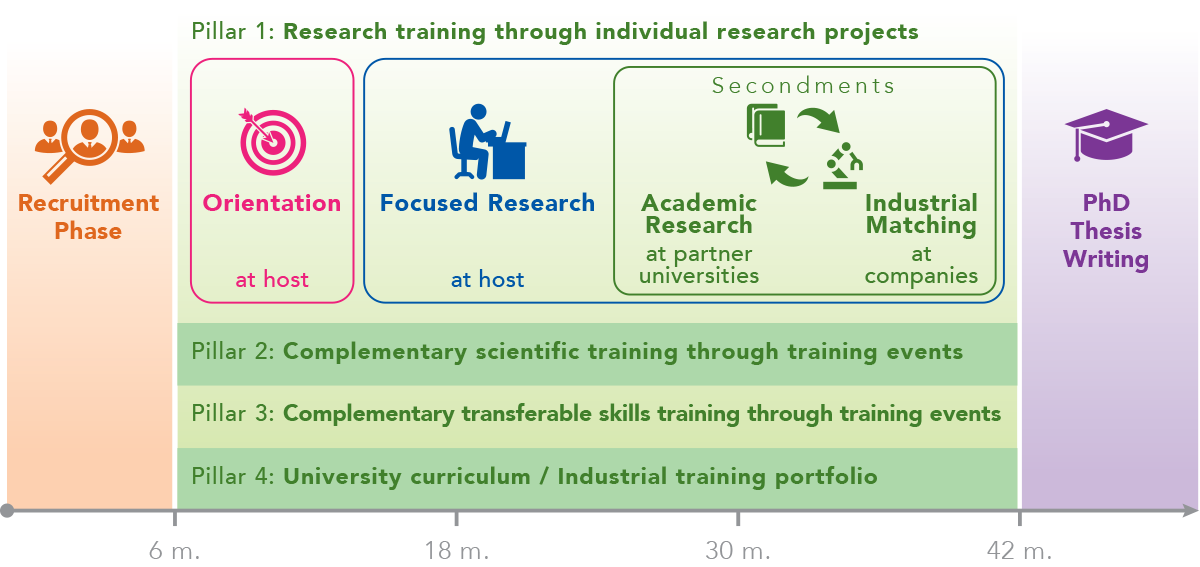Training
RESCUE training methodology follows the principles for European Innovative Doctoral Training and focuses individually on every recruited ESR putting the individual Career Development Plans (CDP) in the centre of the training methodology. The training scheme starts with an orientation and initial training phase to address the gaps in previous MSc level education. Next comes focused individual research at the host institution. First secondments to partner institutions help ESRs to identify research requirements. Further interaction within the network helps with self-evaluation of research results and cross-sectoral matching. Finally, the research is oriented towards publications and thesis drafting. Every ESR has two explicitly assigned personal supervisors - one at the host institution and one at a cross-sector institution from the RESCUE network.
RESCUE ETN establishes an innovative four-pillar based training programme where different pillars complement each other:
Pillar 1: Research training through individual research projects
Pillar 2: Complementary scientific training through training events
Pillar 3: Complementary transferable skills training through training events
These include, but not limited to Introduction to MSCA and training on gender issues; Intellectual Property Rights training; Scientific Writing; Research Ethics training; Start-ups and Industry Transfer; Communication training; Horizon 2020 and Project Management.
Pillar 4: Additional training opportunities provided by existing curricula of consortium partners (i.e. the PhD study programs at the universities, Cadence training portfolio.)
The ETN provides networking opportunities for ESRs through joint events and intersectoral long-term secondments. During the project implementation, every ESR is seconded to at least two partners including an industrial one for up to 30% of his or her total recruitment time.
The training events embracing the scientific and transferable skills training include tutorials and intra or inter work-packages technical meetings, a series of internal RESCUE Winter Workshops, a series of Summer Schools BELAS. The later one is a unique initiative co-founded by a number of RESCUE partners already before the action. Biannual European - Latin American Summer School on Design, Test and Reliability already had several editions that got an impressive reception by EU and Latin American research communities.
The action targets at a sustainable training network, which will be operational after the project duration and facilitate training cooperation between academic and industrial partners.












